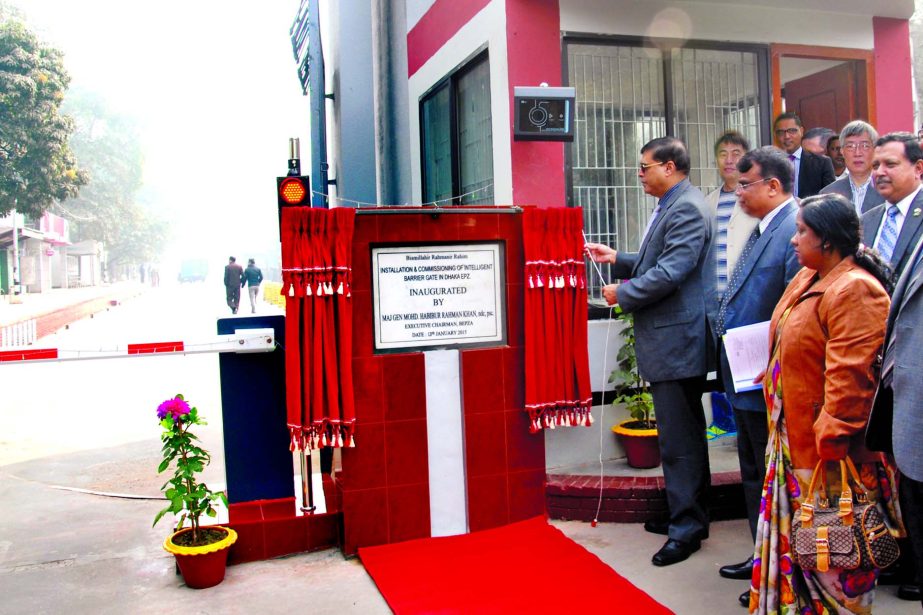
BSS, Dhaka :
Bangladesh Bank (BB) Governor Dr. Atiur Rahman has suggested establishing more Export Processing Zones (EPZs) and Special Economic Zones (EPZs) to promote export.
Listing the central bank’s initiatives and supports to expediting the country’s export growth, the governor said establishing more EPZs and specialized economic zones (SEZ) should be given priority for gaining benefits from trade facilitation.
He was speaking at the 4th Executive Development seminar at the BB headquarters in the capital city. Bangladesh Bank Training Academy (BBTA) organised the seminar on “Post-Bali Developments in the WTO: Addressing the Emerging Challenges to Safeguard Bangladesh’s Interests”.
Executive Director of Centre for Policy Dialogue (CPD) Professor Mustafizur Rahman, BBTA Executive Director (in charge) Md Golam Mostofa and BB Deputy Governor SK Sur Chowdhury also spoke on the issue.
The governor said BB recently increased the size of the Export Development Fund (EDF) from $1.2 billion to $1.5 billion to help promote exports when the country’s EPZs made remarkable growth both in investment (22.5%) and export (13.8%) in immediate past 2013-14 financial year (FY14).
Dr Rahman also referred to the government reform policy including substantial reduction and rationalisation of tariffs, removal of quantitative restrictions, shift from multiple to unified exchange rate regime, convertible current account, and an outward oriented trade policy regime.
“With these policy reforms, Bangladesh has become more globally integrated over time with the trade-GDP ratio rising from 18% in 1990 to around 47% in 2014,” he said, noting that the country’s export grew by 12.0 percent in FY14.
Bangladesh Bank (BB) Governor Dr. Atiur Rahman has suggested establishing more Export Processing Zones (EPZs) and Special Economic Zones (EPZs) to promote export.
Listing the central bank’s initiatives and supports to expediting the country’s export growth, the governor said establishing more EPZs and specialized economic zones (SEZ) should be given priority for gaining benefits from trade facilitation.
He was speaking at the 4th Executive Development seminar at the BB headquarters in the capital city. Bangladesh Bank Training Academy (BBTA) organised the seminar on “Post-Bali Developments in the WTO: Addressing the Emerging Challenges to Safeguard Bangladesh’s Interests”.
Executive Director of Centre for Policy Dialogue (CPD) Professor Mustafizur Rahman, BBTA Executive Director (in charge) Md Golam Mostofa and BB Deputy Governor SK Sur Chowdhury also spoke on the issue.
The governor said BB recently increased the size of the Export Development Fund (EDF) from $1.2 billion to $1.5 billion to help promote exports when the country’s EPZs made remarkable growth both in investment (22.5%) and export (13.8%) in immediate past 2013-14 financial year (FY14).
Dr Rahman also referred to the government reform policy including substantial reduction and rationalisation of tariffs, removal of quantitative restrictions, shift from multiple to unified exchange rate regime, convertible current account, and an outward oriented trade policy regime.
“With these policy reforms, Bangladesh has become more globally integrated over time with the trade-GDP ratio rising from 18% in 1990 to around 47% in 2014,” he said, noting that the country’s export grew by 12.0 percent in FY14.

